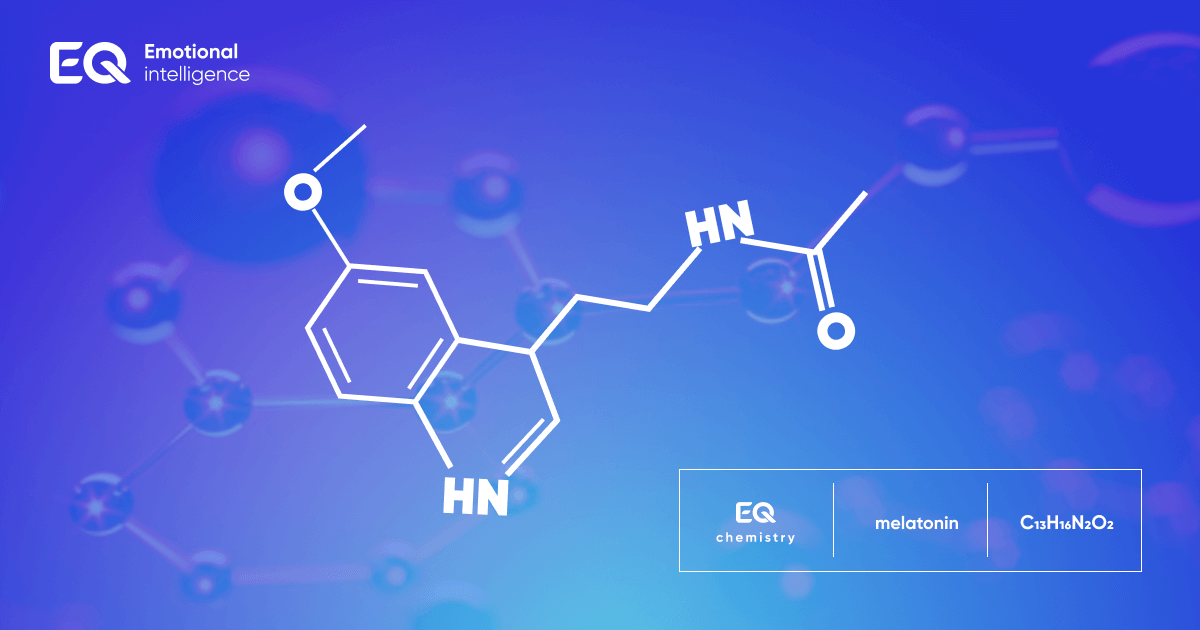There are periods in every person when you want to feel sad, float away into minor dreams, forget yourself in hopelessness, or yearn for something that has not come true. Sadness is very different: melancholy – when the whole world is gray and there is no way out; light – when misfortunes and episodes of good are mixed.
The reasons are also very different: from small failures to great losses, where sadness can develop into grief or sadness.
The chemistry of sadness is such that it is mainly based on a decrease in the level of “happy” hormones – Dopamine, Serotonin,
Endorphins, Oxytocin. That is, sadness is the absence of joy.
Lack of sun can lead to a disruption in the synthesis of MELATONIN, a sleep hormone that is also responsible for antioxidant function, immunity, regulation of the thyroid gland, slowing down aging, normalizing the metabolism of fats and carbohydrates.
Melatonin is a substance that is synthesized from Serotonin, so the levels of these hormones depend on each other. So, on a short daylight hours, such as in winter, less Serotonin can be produced, and therefore less Melatonin, which can lead to the desire to feel sad and cry.
To regulate the state of production of Melatonin, take care of the quality of sleep:
- turn off all light sources completely before going to bed;
- blue screens of gadgets and computers negatively affect the synthesis of the sleep hormone, so it is recommended not to look into the phone before going to bed;
- ventilate the room;
- peak production of Melatonin from 22:00 to 4:00, try to sleep at this time;
- coffee, tea, nicotine, alcohol also reduce the synthesis of the sleep hormone;
- follow the daily routine and go to bed

How does a decrease in the level of other hormones affect a person?
A REDUCTION OF SEROTONIN leads to:
+ the appearance of irritability;
+ the person may begin to notice more negativity;
+ increased vulnerability and sensitivity;
+ difficulty tolerating physical pain;
+ possible feelings of injustice
The state of sadness can sometimes simply be experienced, if you have the opportunity – cry, give free rein to this emotion, do it. If the condition drags on, you should try to cheer yourself up in these ways.
You can increase SEROTONIN with your own hands:
+ eat food rich in Tryptophan – an essential amino acid that takes part in the synthesis of Serotonin. Tryptophan is found in dark chocolate, eggs, bananas, nuts, seeds, meat, legumes;
+ go out into the sun – bask, walk or just on the way to work. Even if the day is gloomy, it still works for the benefit of the synthesis of Serotonin;
+ increase the level of magnesium – red fish, all kinds of greens and legumes to help;
+ take time to exercise your body – sports, dance, yoga, martial arts;
+ add meditation to your daily practice
REDUCED DOPAMINE
When this satisfaction hormone is in short supply, a person may have difficulty concentrating on tasks, lethargy and fatigue in the body, and even decreased sexual desire. Dopamine is our main motivator, and when we are sad, discouragement and boredom can occur, which clearly indicate a low level of the hormone of pleasure.
To RAISE Dopamine levels naturally, you can follow these steps:
- Add to the diet protein foods rich in amino acids Tyrosine and Phenylalanine – turkey, eggs, dairy products, legumes.
- Exercise – in addition to Dopamine, Endorphins are added immediately.
- Monitor your sleep quality.
Do you have goosebumps music? Listen with pleasure and know that the hormones of joy also grow from this.
Meditate and walk outside.
When the level of the hormone of trust – oxytocin – decreases, we are also sad.
OXYTOCIN is a hormone without which we feel lonely and the world really becomes gray and hostile. Adequate amounts of it reduce the level of stress hormones in the blood.
What to Do to Raise Oxytocin Levels?
+ talk, hug with a loved one – let this contact be pleasant and confidential;
+ take care of your pet – purring of a cat, wagging a dog’s tail, tactile contact with animals provokes the release of Oxytocin;
+ call a masseur – a quality massage raises the level of this tactile hormone very well.
Of course, it’s worth working out the root of the sadness problem – the true cause of the condition. We can influence hormones by using the right food, physical and breathing exercises, meditation. You should not avoid such states – they are given to us in order to understand and live a certain experience.
If you need to be sad, the main thing is to be aware of it.


Recent Comments